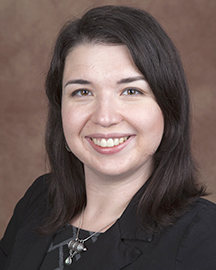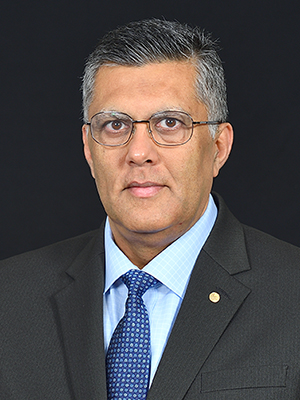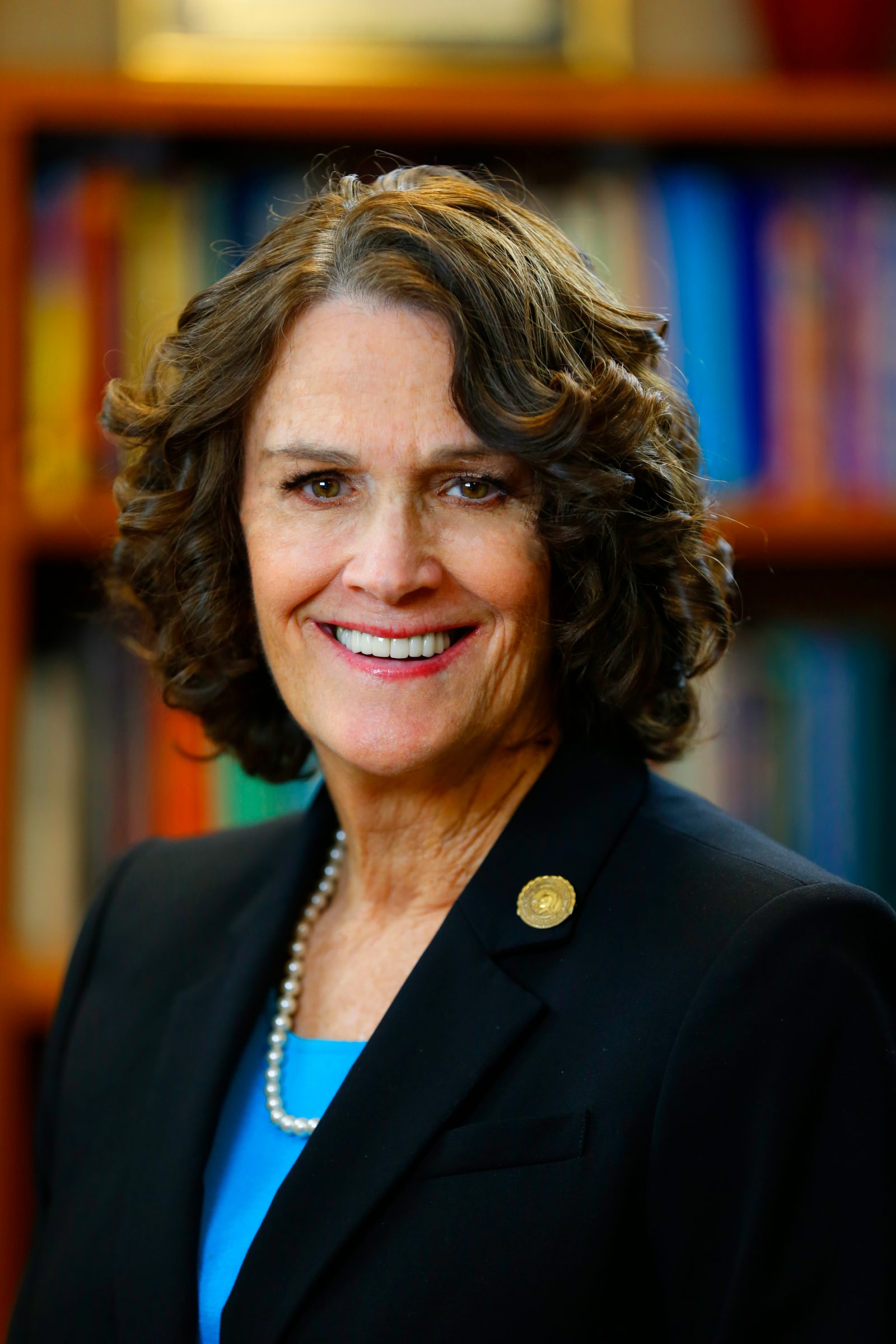The Undergraduate Policy and Curriculum Committee reviews and provides recommendations on undergraduate policies, instruction, and standards, and university-wide undergraduate degree requirements.
Meeting Schedule
On April 7, 2016, the Faculty Senate Steering Committee established Tuesday as the standard meeting day and 12:00 – 1:00 p.m. as the standard meeting time. The standard meeting time does not prevent the curricular committees from scheduling a longer or additional meeting to address time-sensitive deadlines. The specific meeting schedule for the committee is maintained by the Provost’s Office at Undergraduate Policy and Curriculum Committee website.
Members
Jason Phillips, Chair
University Libraries
Academic Administration
Email: Jason.Phillips@ucf.eduTBD, Vice Chair
College of Undergraduate Studies Support
Email: upcc@ucf.edu
-
Jason Phillips
 University Libraries-Research & Information Services; Senate Representative
University Libraries-Research & Information Services; Senate Representative
-
Amanda Groff
 College of Sciences- Anthropology; Faculty Representative
College of Sciences- Anthropology; Faculty Representative -
Anna Valdes
 College of Health Professions and Sciences-School of Kinesiology & Physical Therapy; Faculty Representative
College of Health Professions and Sciences-School of Kinesiology & Physical Therapy; Faculty Representative -
Brigitte Kovacevich
 College of Sciences-Anthropology; Faculty Representative
College of Sciences-Anthropology; Faculty Representative -
Camilla Ambivero
 College of Medicine-Burnett School of Biomedical Sciences; Faculty Representative
College of Medicine-Burnett School of Biomedical Sciences; Faculty Representative -
Charlotte Jones-Roberts
 Division of Digital Learning- Center of Distributed; Faculty Representative
Division of Digital Learning- Center of Distributed; Faculty Representative -
Danny Hernandez
 College of Nursing- Nursing Practice; Faculty Representative
College of Nursing- Nursing Practice; Faculty Representative -
David Harrison
 Department of Finance; College of Business Administration; Faculty Representative
Department of Finance; College of Business Administration; Faculty Representative -
Gabriela Polera
 Student Government Association; Student Representative
Student Government Association; Student Representative -
Gulnora Hundley
 College of Community Innovation and Education-Counselor Education & School Psychology; Senate Representative
College of Community Innovation and Education-Counselor Education & School Psychology; Senate Representative -
Jorri Bright
 College of Sciences- Nicholson School of Communication and Media; Faculty Representative
College of Sciences- Nicholson School of Communication and Media; Faculty Representative -
Leigh Rosenthal
 College of Business Administration- Kenneth G. Dixon School of Accounting; Senate Representative
College of Business Administration- Kenneth G. Dixon School of Accounting; Senate Representative -
Lori Walters
 College of Graduate Studies-School of Modeling Simulation & Training; Faculty Representative
College of Graduate Studies-School of Modeling Simulation & Training; Faculty Representative -
Nicolas Douguet
 College of Sciences- Physics; Faculty Representative
College of Sciences- Physics; Faculty Representative -
Peder Hagglund
 Rosen College of Hospitality Management-Foodservice & Lodging Management; Senate Representative
Rosen College of Hospitality Management-Foodservice & Lodging Management; Senate Representative -
Richard Plate
 College of Undergraduate Studies- Interdisciplinary Studies; Senate Representative
College of Undergraduate Studies- Interdisciplinary Studies; Senate Representative -
Robert “Joe” Gennaro
 College of Arts and Humanities- School of Performing Arts; Senate Representative
College of Arts and Humanities- School of Performing Arts; Senate Representative -
Shuo “Sean” Pang
 College of Optics and Photonics; Faculty Representative
College of Optics and Photonics; Faculty Representative -
Sumanta Pattanaik
 College of Engineering and Computer Science-Computer Science; Faculty Representative
College of Engineering and Computer Science-Computer Science; Faculty Representative
Ex-officio members
-
Alan Fyall
 Rosen College of Hospitality Management-Tourism, Events & Attractions; Ex Officio
Rosen College of Hospitality Management-Tourism, Events & Attractions; Ex Officio -
Brett McCollum
 College of Science- Dean's Office; Ex Officio
College of Science- Dean's Office; Ex Officio -
Delia M. Garcia
 College of Arts and Humanities-Dean's Office; Ex Officio
College of Arts and Humanities-Dean's Office; Ex Officio -
Manoj Chopra
 College of Engineering and Computer Science-Civil, Environmental & Construction Engineering; Ex Officio; Chair, University Athletics Advisory Committee
College of Engineering and Computer Science-Civil, Environmental & Construction Engineering; Ex Officio; Chair, University Athletics Advisory Committee -
Martin Dupuis
 Burnett Honors College-Dean's Office; Ex officio
Burnett Honors College-Dean's Office; Ex officio -
Maureen Covelli
 College of Nursing-Undergraduate Affairs; Ex Officio
College of Nursing-Undergraduate Affairs; Ex Officio -
Patrick LiKamWa
 College of Optics and Photonics; Faculty Representative
College of Optics and Photonics; Faculty Representative -
Robin Back
 Office of Undergraduate Studies; Ex officio
Office of Undergraduate Studies; Ex officio -
Ronnie Zimmerman
 College of Community Innovation and Education- Dean's Office; Administrator
College of Community Innovation and Education- Dean's Office; Administrator -
Sean Robb
 College of Business Administration-Dean's Office; Ex Officio
College of Business Administration-Dean's Office; Ex Officio -
Suha Saleh
 College of Health Professions and Sciences-Dean's Office; Ex Officio
College of Health Professions and Sciences-Dean's Office; Ex Officio -
Timothy Letzring
 Academic Affairs; Ex Officio
Academic Affairs; Ex Officio -
William Self
 College of Medicine-Burnett School of Biomedical Sciences; Ex Officio
College of Medicine-Burnett School of Biomedical Sciences; Ex Officio
Meeting Materials
The official agendas, materials distributed, and approved minutes and materials for each meeting are distributed and maintained by the Provost’s Office at Undergraduate Policy and Curriculum Committee Website.
Membership
The Undergraduate Policy and Curriculum Committee shall consist of the chair of the Undergraduate Council, an elected vice chair, and fifteen faculty members, with at least one representative from each of the academic units. Faculty membership shall proportionally represent the number of faculty of the colleges, and an effort shall be made to include members of the college curricular committees. The ex officio members include the dean of the College of Undergraduate Studies (or designee) and the assistant or associate dean (or designee) whose responsibilities include undergraduate curricular issues from each of the colleges. Terms of service are two years, staggered.
Duties and Responsibilities
- To study, review, and provide recommendations on undergraduate academic policies.
- To study, review, and provide recommendations on university-wide undergraduate degree requirements, including the General Education Program (GEP), foreign language requirements or proficiency, admission standards, and baccalaureate academic honors.
- To study and review recommendations from the University Common Program Oversight Committee on changes to the General Education Program and to transmit recommendations to the dean of the College of Undergraduate Studies.
- To review and make recommendations on all proposals for planning or implementation of new undergraduate degree programs, minors, and elimination of existing programs that will be submitted by the committee to the Office of Academic Affairs prior to submission to the Board of Trustees for final approval.
- To review and make recommendations on all proposals for revisions to existing degree programs and certificates.
- To review and make recommendations on the allocation of the Equipment Fee to the dean of the College of Undergraduate Studies, who submits his/her recommendations to the provost and vice president for Academic Affairs.
- To transmit its recommendations to the dean of the College of Undergraduate Studies, who submits his/her recommendations to the provost and vice president for Academic Affairs. The committee may also make recommendations to the Steering Committee of the Faculty Senate.
Committee Guidance
About Senate Curricular Committees
The Faculty Senate establishes Senate curricular committees, which report to the full Faculty Senate at each meeting of the Faculty Senate. Subcommittees of the council carry out the work of the council. As the elected representatives of the faculty, the Faculty Senate is responsible for all university curricular committees and councils. See Undergraduate Council for details regarding the Council.
Even though there is no voting by proxy for Senate meetings, Senate curricular committees may adopt policies at the start of the year to allow voting by proxy. According to Robert’s Rules of Order (latest edition) proxies should be written, be for a specific meeting, and be given to the committee chair before the start of a meeting.